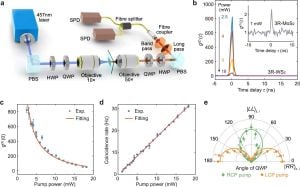Pope Francis remains hospitalized at Gemelli Hospital in Rome, where his condition has been categorized as "critical" due to complications arising from pneumonia. This prolonged health crisis has prompted discussions not only about his recovery but also about the future of papal leadership. With the Pope now 88 years old, questions loom over who might succeed him should he become incapacitated.
Since February 14, 2025, when he was admitted due to serious respiratory issues, the Vatican has been keeping the public informed about his health. Onlookers have noted the gravity of his situation, including incidents where he required supplemental oxygen after experiencing respiratory distress. According to reports from the Vatican, "The Holy Father continues to be awake, alert, and well-oriented," indicating some stability even amid significant health challenges.
The complexity of Pope Francis's condition has reignited interest and speculation around the rules governing papal succession, particularly concerning scenarios of incapacitation where no explicit provisions currently exist in canon law. Historically, the only circumstances under which the papal seat changes hands are upon the death or resignation of the Pope. Yet, if the Holy Father were to become permanently incapacitated, what would the Church do? That question remains largely unanswered.
Under canon law, there are established procedures for when diocesan bishops cannot fulfill their duties due to health issues, but similar directives for the Pope are absent. Some canon lawyers suggest the need to formalize such guidelines to avoid potential power vacuums or confusion surrounding papal authority. Notably, it has been reported, "If the Pope is incapacitated, there is no specific protocol dictifying what happens to the Church's leadership." This lack of clarity has led to discussions within the ecclesiastical community about the necessity of creating protocols for possible future scenarios.
On the front lines of this dialogue are key figures discussed as potential successors, should Pope Francis either resign or pass away. Among them is Cardinal Pietro Parolin, the current Secretary of State at the Vatican, who, at age 70, stands as one of the central candidates due to his diplomatic expertise and longstanding relationship with Pope Francis. "At this moment, we must focus on the healing of Pope Francis and avoid unnecessary speculations about his resignation," Parolin emphasized, indicating the Papal administration's desire to prioritize the Pope's recovery.
Other notable names under consideration include Cardinal Luis Antonio Tagle, recognized for his progressive stances, and Cardinal Matteo Zuppi, whose social advocacy aligns with Francis's vision for the Church. Despite these discussions, many within Vatican circles lean toward the belief the next pope will likely continue to embody the openness and outreach exemplified by Francis. Detailed by Edward Pentin, author of The Next Pope, the current conclave includes cardinals hailing from various backgrounds, which reflects the Church's diverse global community and contemporary challenges.
The contrasts between potential successors reflect the Church's ideological spectrum. On the more conservative side, figures such as Cardinal Peter Erdö and Cardinal Raymond Leo Burke, well known for their doctrinal firmness, could pull the Church back to traditional stances should they ascend to the papacy. Historical precedents suggest substantial shifts occur with each new pontiff, underscoring the importance of the next conclave.
Meanwhile, the global response to Pope Francis's health crisis has been overwhelmingly supportive. Leaders from around the world, including political figures and religious leaders, have extended messages of hope and encouragement for his recovery. Communities across the globe have organized prayer vigils and masses dedicated to the Pope’s health, illustrating his significant role as not just the Bishop of Rome but as a figure of unity within the Catholic Church and beyond.
Despite the uncertainty surrounding papal succession, one thing is clear: the leadership of Pope Francis has impacted countless lives around the world. Whether through his emphasis on social justice, climate change, or interfaith dialogue, his papacy has altered the Church's global footprint. Observers and faithful alike are left with prayers and hopes for his recovery, emphasizing the note of collective strength within the Church.
With his hospitalization entering its tenth day, the situation remains fluid as medical staff continue to monitor the Pope’s condition closely. Each update from the Vatican is met with bated breath by the global community as serious discussions not only about leadership but about the core direction of the Catholic Church loom large.



